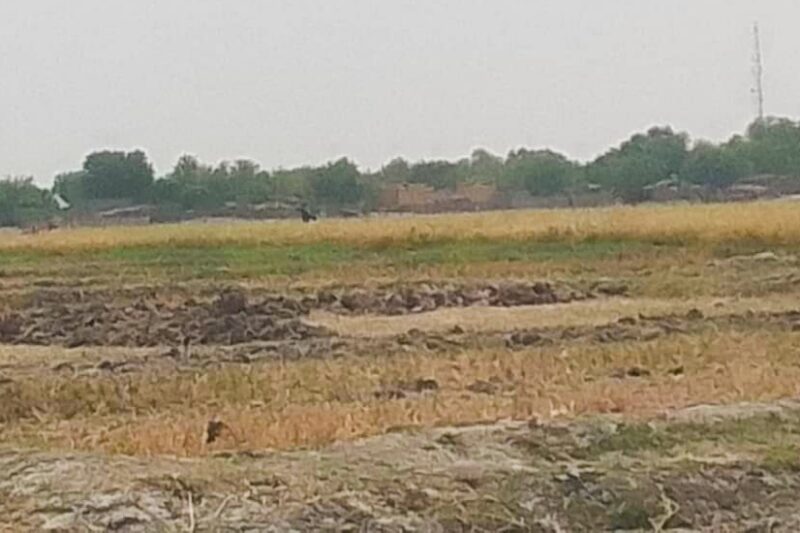Ahead of the rainy season, the Borno State government has ordered that wide trenches be dug on the outskirts of Kala-Balge to prevent roaming elephants from trampling and destroying farms.
The Borno State government’s agricultural services agency has begun digging wide trenches on the outskirts of the Kala-Balge Local Government Area to stop migratory elephants from destroying farmlands and crops.
Most farmers say the trenches are necessary because they cannot afford effective electric fences to keep the elephants at bay.
They say their livelihoods are at stake – and the destructive elephants also pose a threat to food security because they trample and eat the crops.
The migratory elephants are an annual nightmare for farmers. Every year the elephants move back and forth from neighbouring Cameroon using routes through Kala-Balge and the Ngala Local Government Area.
Seasonal farmers say the “marauding” elephants not only pose a threat to their farmlands and crops – their livelihood – but also to themselves. In the past, elephants have trampled and killed farmers who were trying to stop them from destroying their lands.
Adam Ambadu Kala, the director of Borno State’s agricultural services, said: “The state government is aware of the plight of farmers in Kala-Balge, Gamboru Ngala and other local government areas that face challenges caused by roaming elephants.
“For that reason, ahead of the rainy season, the Borno State government’s ministry of agriculture has ordered that wide trenches be dug on the outskirts of Kala-Balge to prevent elephants from trampling and destroying people’s farms.”
He said the arable farms were a tempting source of food to roaming elephants, which were capable of wiping out entire crops.
“Elephants have learned to overcome common deterrents, such as hedgerows, and most poor farmers cannot afford effective electric fences. The government has decided to intervene by digging wide trenches to protect farmlands and ensure food security.
“The elephants have been using the same migratory routes for years. Expanding human settlements, agricultural development and infrastructure construction have resulted in the fragmentation of their habitat.
“We are aware that many farmers have lost significant amounts of their farm produce to the overwhelming encroachments.
“We know of farmers who had expected to harvest 100 bags of maize but ended up with just five. Often the elephants do not even feed on the crops, they trample and destroy everything.”
Ambadu Kala said farmers sometimes beat drums or beamed torchlights to try to dissuade the herds from approaching but these methods were not effective and did not stop the elephants.
“Often the elephants leave but they return late at night when the farmers are at home. When the farmers get to their lands in the morning, they find them flattened.
“We are calling on people living in agrarian communities, such as Kala-Balge, not to farm on traditional elephant routes and not to take the law into their own hands by harming or killing the elephants.
“The wide trenches should discourage the elephants and, hopefully, they will roam elsewhere. We are doing our best to protect the elephants, but we are aware the farmers and their lands need protection as well.”
Modu Mamman Tar, a farmer and resident of Rann, the headquarters of Kala-Balge, confirmed that the government’s agricultural services agency had started digging trenches around farmlands to prevent elephant destruction.
He said he was grateful for the intervention because it would enable farmers to conduct normal seasonal agriculture “without fear of marauding elephants”.
“The elephants come to our lands every year. They trample our farmlands and eat all our crops. Every year we complain and every year we are left to defend our lands without help. We are grateful that the government is intervening to help us this year,” said a farmer from Rann, who identified himself only as Babagana.
“Mostly we try to chase the elephants away but they come back at night. In the morning we find our lands trampled and our crops are gone.”
Zara Mohammad, a woman farmer from the Ngala Local Government Area, urged both the federal and state governments to put in place necessary measures to curtail “the menace of roaming elephants” and provide farmers with adequate security to ensure their safety.
“We heard that the government has started digging trenches in Kala-Balge. We in the Ngala district are calling on the government to expand its work to this area because we are also victims of encroachment by elephants.”
SHETTIMA LAWAN MONGUNO








